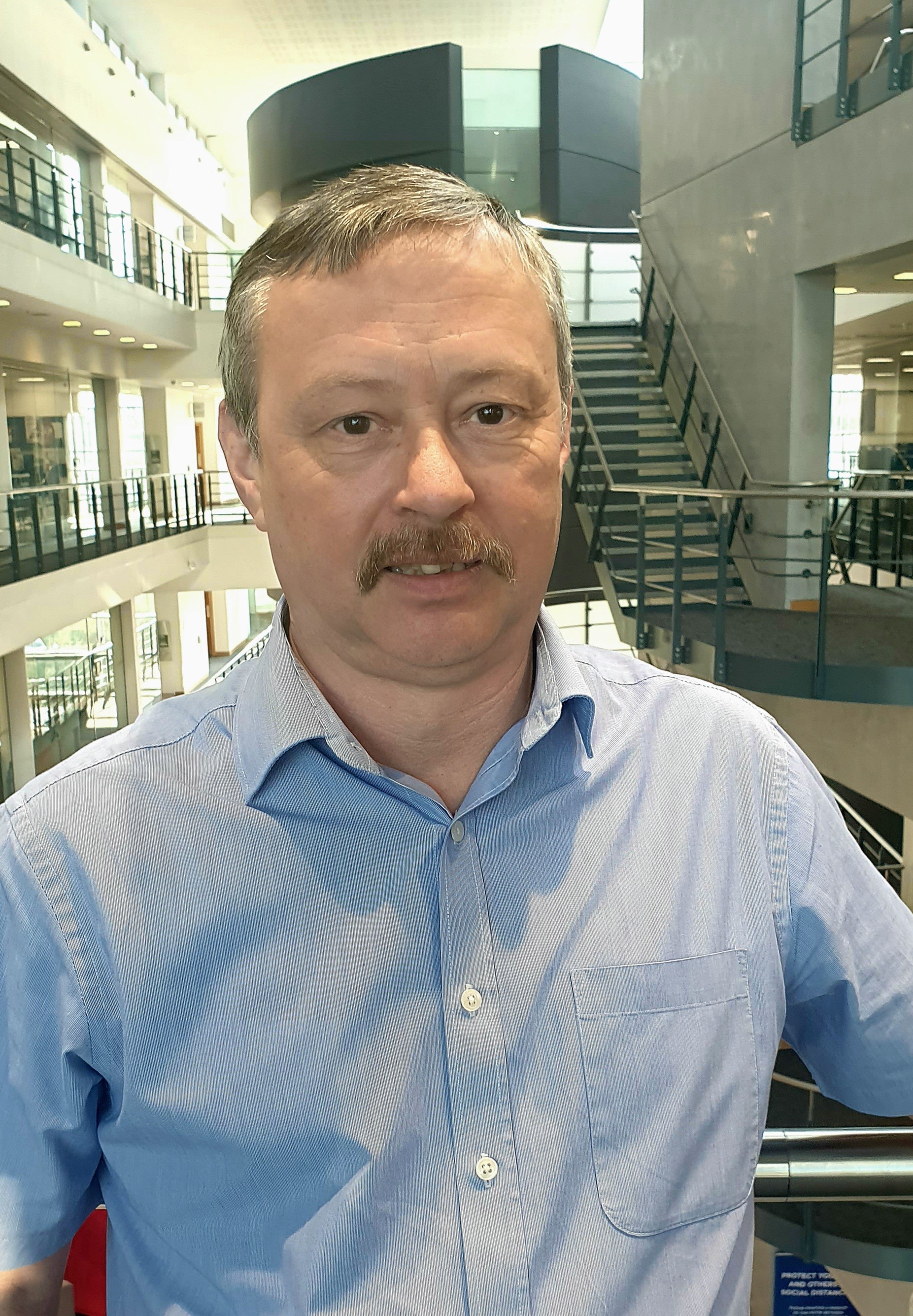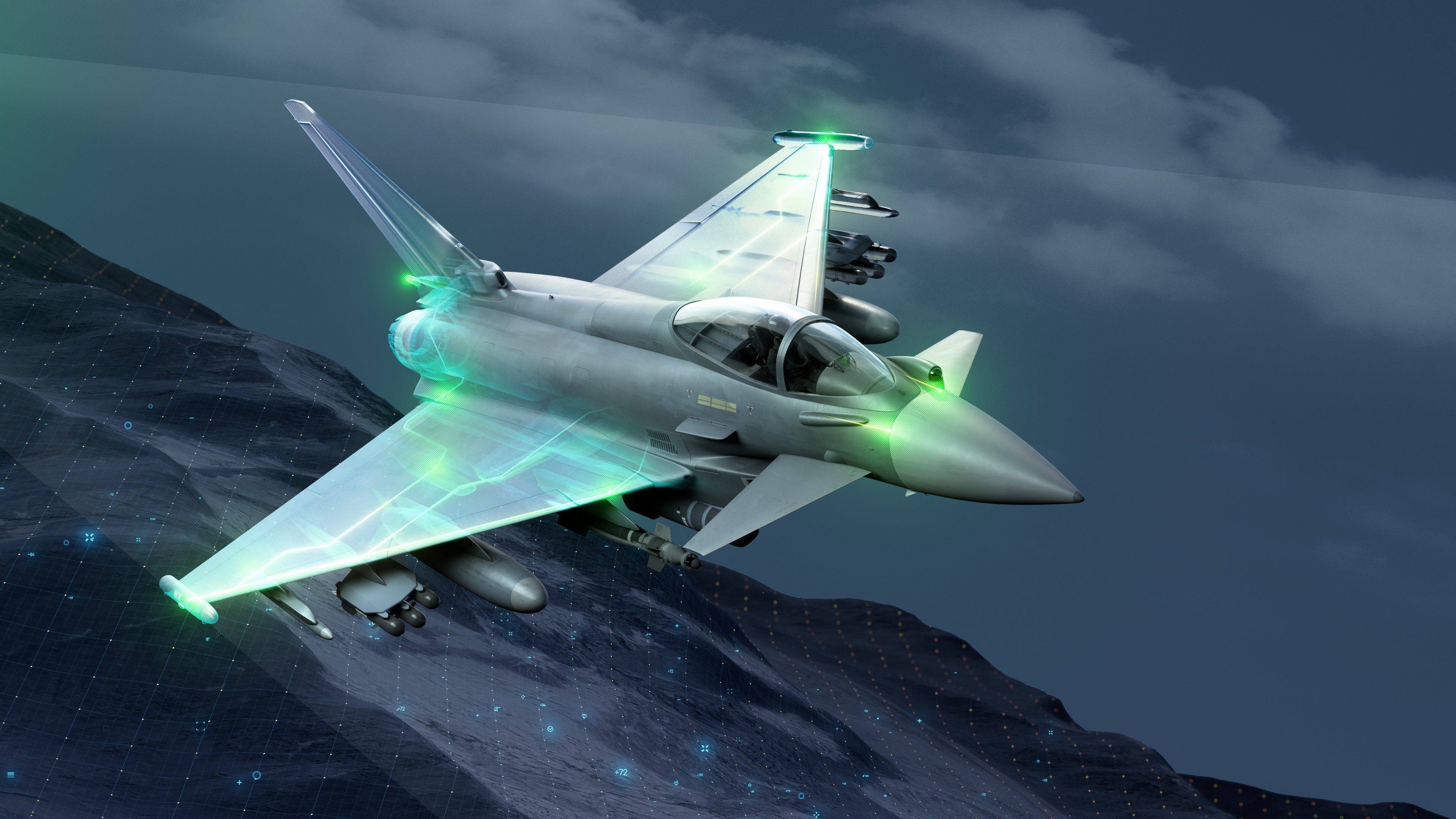
Tell us a little about your career background?
I started with GEC-Marconi as a technical apprentice in 1984 and I’ve been with the company in all its guises, we’re now Leonardo, ever since. I did a four-year apprenticeship, moving around all the major departments. It was useful to get an overview.
Of all the areas, I chose electronic warfare (EW), working firstly on the Tornado programme. I did day release to get my engineering degree. I joined the Typhoon programme as a system integration and trials engineer at least 15 years ago and have been involved with Typhoon Praetorian, as it is now, ever since. For the last 20 years I've been involved in the test and trials arena. I go and work alongside the mission support centre and especially with the UK test squadron.
What attributes do you need for your role?
It really is all about problem-solving. I have a technical background and am very much a hands-on person so that’s something I love. You have to use all your experience to understand how the equipment works now and how the customer would like it to progress. To do that, you’ve got to really know the system and have strong relationships with the end user. We come up with ideas and suggestions which might be useful, and the end users also come to us with new threats and ask for our help to counter them.
What attracted you to the role?
It is just so interesting, getting involved with fast jets, trying to defeat a radar that’s trying to launch a missile at you. It's an important job. I do lead a lot of the new technical stuff. So, it’s certainly a job I like.
Who are the people who have inspired or mentored you along the way?
When I first got involved all those years ago, the main person in electronic warfare in our company, and in the UK for many years, was a guy called Steve Roberts who went on to become our Director of Strategy & Competitive Analysis and a Visiting Professor at Cranfield University. On my first ever trip to the States with the Harriers in 1994 he was senior engineer. He would sit down and explain everything, from the very simple to the very complex.

What are the main challenges?
EW evolves and changes constantly. As the threats get more involved, the countermeasures have had to evolve. It’s a continual conversation and exchange of ideas with different people.
I sit between several different teams. You often need to discuss things in a different way with different people, which makes things interesting.
How does it feel to be working as part of the Eurofighter project?
I’m proud to be part of it. I work alongside our end-users and because we are part of a consortium, I constantly get the opportunity to collaborate with our German, Spanish and Italian counterparts.
What are key personal and professional attributes you have needed to draw upon to reach your level?
You’ve got to be thick skinned! I worked up from being an apprentice and therefore I've spent years working in the lab, looking at scopes and screens and trying to understand all the ‘ins and outs’. I've been able to move across quite large programmes, which means I not only understand the current capabilities of the equipment but can look towards the future.
And is there a typical day in all of this?
There’s never a typical day! Yesterday, I was looking at designing some new software items. Today I have been looking at the test regime for the next version of software. Next Wednesday I'll be at BAE Systems talking to them.
Why is the work important?
The EW system is there to protect the aircraft; that is our job. Our team is all about trying to improve the product. The contact I have with the end-users, especially in the UK, is all about that. Obviously, it’s not just me, it is the whole Praetorian team.
How do you relax?
I’ve a season ticket at Saracens rugby union club and go and watch them when I can. Then there’s gardening, I’ve got a big greenhouse and garden. It’s a great way of switching off and concentrating on something completely different. Sometimes random ideas come into your head when your mow the lawn.
